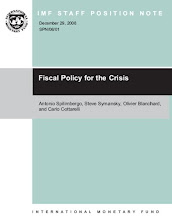After inking nuclear deal to encourage nuclear trade between India and the US, both countries are at loggerheads on terms of trade for agricultural items. It’s the second week of the all important World Trade Organisation (WTO) talks at Geneva, already finger pointing and blame game had began. Trade ministers have repeatedly broken up their meeting, while blaming others for the break up. The WTO secretariat is releasing the revised texts reflecting the convergence achieved so far in agricultural goods and industrial products. But the texts also have blank spaces denoting disagreements. The US without naming India and China has accused them of unraveling the talks. Meanwhile, India in its own might has blamed the US of digging in its heels.
A major point of objection for a large number of developing economies, including India and China, is the safeguards against import surges. An effective remedy will have to wait till imports surge by 40% by volume, a trigger they think is too high. To lower cotton subsidies the US wants China to lower import duties. It wants the large developing countries to abolish import duties on automobiles, chemicals and textiles, while itself taking 10 years to lower high duties on items of interest to India and China, that is textiles and garments. Though there is agreement on many issues, unless some of these politically sensitive issues are settled, the talks could be back to where they were.
Meanwhile, India’s Commerce Minister, Kamal Nath, said that, "We have issues on NAMA (non-agricultural market access), we are opposed to anti-concentration, we want to protect our auto sector. We have given nothing and got nothing because nothing is settled yet. "
With just few days to go for the talks to end, time is wearing out and patience is wearing thin. The developing countries say they have yielded a lot, but have got little in return, though these talks were supposed to address their developmental concerns.
However there is still hope for a positive development in the time left. As Commerce Minister Kamal Nath said that, India still hopes make-or-break talks at WTO to salvage a global trade pact will make progress even though he disagreed with last week's compromise.
We will have to wait and watch in the next few days, whether these WTO talks churn out something fruitful, or will it end in a fiasco.
A major point of objection for a large number of developing economies, including India and China, is the safeguards against import surges. An effective remedy will have to wait till imports surge by 40% by volume, a trigger they think is too high. To lower cotton subsidies the US wants China to lower import duties. It wants the large developing countries to abolish import duties on automobiles, chemicals and textiles, while itself taking 10 years to lower high duties on items of interest to India and China, that is textiles and garments. Though there is agreement on many issues, unless some of these politically sensitive issues are settled, the talks could be back to where they were.
Meanwhile, India’s Commerce Minister, Kamal Nath, said that, "We have issues on NAMA (non-agricultural market access), we are opposed to anti-concentration, we want to protect our auto sector. We have given nothing and got nothing because nothing is settled yet. "
With just few days to go for the talks to end, time is wearing out and patience is wearing thin. The developing countries say they have yielded a lot, but have got little in return, though these talks were supposed to address their developmental concerns.
However there is still hope for a positive development in the time left. As Commerce Minister Kamal Nath said that, India still hopes make-or-break talks at WTO to salvage a global trade pact will make progress even though he disagreed with last week's compromise.
We will have to wait and watch in the next few days, whether these WTO talks churn out something fruitful, or will it end in a fiasco.




No comments:
Post a Comment